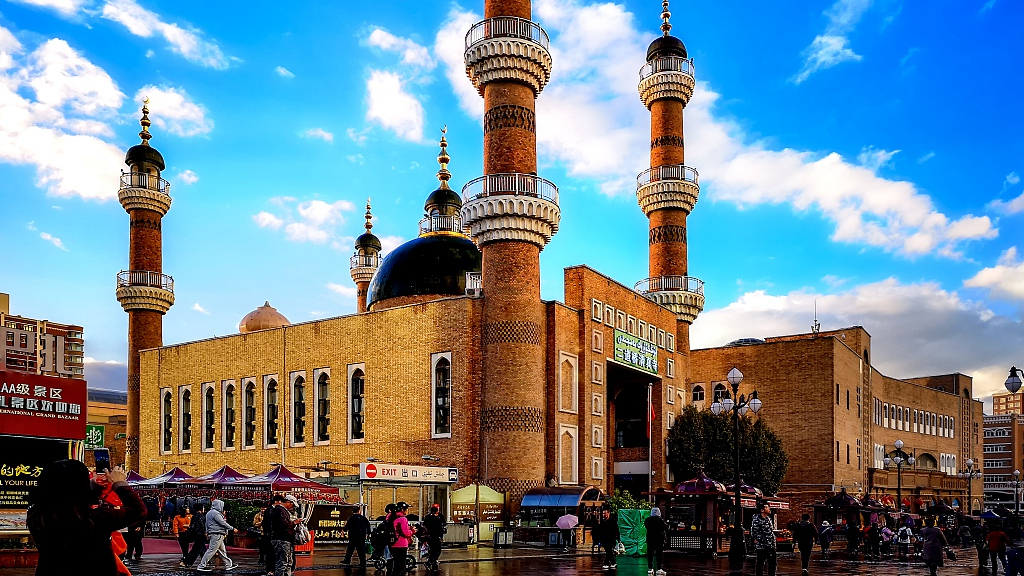
A mosque in Urumqi, capital of northwest China's Xinjiang Uygur Autonomous Region. /VCG
A mosque in Urumqi, capital of northwest China's Xinjiang Uygur Autonomous Region. /VCG
Some anti-China forces in the West, including the United States, have supported separatist and terrorist activities in China's Xinjiang Uygur Autonomous Region for geopolitical purposes.
The opinion is from an eight-article series "Xinjiang: China's Western Frontier in the Heart of Eurasia" published in November 2020 to March 2021 by the Australian Alert Service, a weekly publication of the Australian Citizens Party.
The 40-page special report pointed out the real purpose behind — undermining China's stability and curbing its development by politicalizing Xinjiang-related and human rights issues and smearing the Chinese government.
The series exposed "the Anglo-American sponsorship of 'East Turkistan' separatism" by demystifying what is going on in and around Xinjiang.
Historically, the Eurasian policies of the United States and the United Kingdom have always served their geopolitical goals and were the culprits behind the turbulence in the region, according to the report.
The report further expounded how the U.S. violated its law to provide money or assistance to ISIL and other terrorist groups in history.
"Yet the U.S. government has been violating this law for years, quietly supporting allies and partners of al-Qaeda, ISIS (ISIL), Jabhat Fateh al-Sham and other terrorist groups with money, weapons, and intelligence support, in their fight to overthrow the Syrian government," said the report citing a January 2017 speech of then American Congresswoman Tulsi Gabbard (Democrat of Hawaii).
Since the end of the Cold War, the United States and Britain have used Xinjiang as a deterrent to China, supporting separatist and terrorist forces, said the report.
It cited an officer of the U.S. Central Intelligence Agency (CIA), who stated in 1999 that "the policy in Afghanistan against the Russians can still be used to destabilize what remains of Russian power, and especially to counter the Chinese influence in Central Asia."
Since 2004, the National Endowment for Democracy (NED) has funneled $8.76 million to activist groups' campaigning in Xinjiang against China and "all the publicly identified recipients are Uygur diaspora groups", according to the report.
'Uygur card', means of exerting pressure on China
The Central Intelligence Agency suggested in 2003 that playing the "Uygur card" can serve as a means of exerting pressure on China "in the event of some future crisis or confrontation," said the report.
It continued that under the guidance of the strategy, Britain, the United States and its allies have followed the Cold War mentality, fabricated a lot of false information about the so-called repression of the Uygurs in Xinjiang, and coordinated with mainstream Western media to spread the fake information.
Such fake content included Xinjiang Muslims' support for "independence", East Turkestan Islamic Movement (ETIM) pursuing peace, and human rights violation in Xinjiang, said the report.
The report also mentioned the Australian Strategic Policy Institute, calling it the "primary disseminator" of reports and allegations of Chinese government's "human rights abuses" against the Uygurs in Xinjiang.

